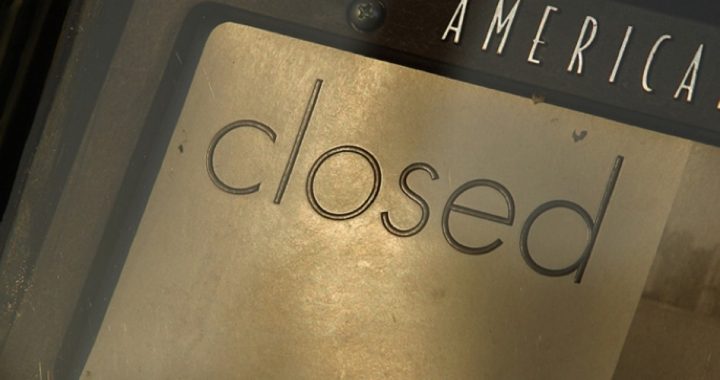
Since 2008, American businesses have been closing faster than they are being created — a trend that suggests that genuine, lasting economic recovery may still be eluding the United States.
The U.S. Census Bureau began gathering statistics on U.S. business openings and closings in 1977. Each year for the next three decades, the bureau found that about 100,000 more businesses were started than folded. Then, with the onset of the Great Recession, existing businesses began failing at a faster rate than new ones were being launched. By 2011, the last year for which the Census Bureau has released statistics, there were 70,000 more business deaths than business births. In fact, the annual count of new businesses has fallen so drastically that the United States now ranks 12th among developed nations in terms of business startups.
“We are behind in starting new firms per capita, and this is our single most serious economic problem,” asserted Gallup CEO and chairman Jim Clifton.
That’s because “new firms … historically account for virtually all net new jobs generated each year in the United States,” noted the Washington Post. These businesses are, in Clifton’s words, “the real engines of economic growth.”
What accounts for the dearth of business startups in recent years?
For one thing, Americans’ personal savings, the primary source of startup funds for small businesses, were drastically shrunk by the economic collapse. In addition, the Federal Reserve’s twin policies of inflation and extremely low interest rates create a disincentive for savings. Why sock away money in the bank when it’s going to lose value faster than it can earn interest?
Then there is the labyrinth of regulations that business owners must navigate.
“The stifling effect of regulatory burden, complexity, and uncertainty is particularly acute for new businesses,” John Dearie, executive vice president of the Financial Services Forum, told the House Small Business Committee in September.
Indeed, such “regime uncertainty” was one of the prime reasons the Great Depression lasted so long, economist Robert Higgs has argued. With property rights ever in flux, changing at the whim of Congress and the Roosevelt administration, “private investors dared not risk their funds in the amounts typical of the late 1920s,” wrote Higgs. Only after Roosevelt’s death and the end of World War II, when the government began to shrink somewhat and the political climate became less volatile, did investors begin once more to invest and the economy — contrary to many Keynesian economists’ predictions that smaller government meant economic doom — begin to recover.
Taxes, too, are a major hurdle for entrepreneurs.
“Tax complexity and uncertainty, like regulatory complexity and uncertainty, divert the time, attention, and energy of entrepreneurs away from the essential tasks required to successfully launch and grow their businesses [and] amount to mortal threats to new businesses, particularly in the critical early years,” Dearie told the House panel.
ObamaCare, of course, piles both regulations and taxes on businesses, increasing startup costs and discouraging hiring. Is it any wonder that so few Americans want to assume the risks of entrepreneurship these days?
Clifton argued that the business birth and death trends must be reversed if the economy is ever to grow at anything approaching its former rates. Unfortunately, he wrote, politicians don’t seem to have the first clue that there is even a problem, let alone how to solve it:
It is catastrophic to be dead wrong on the biggest issue of the last 50 years — the issue of where jobs come from. Our leadership keeps thinking that the answer to economic growth and ultimately job creation is more innovation, and we continue to invest billions in it. But an innovation is worthless until an entrepreneur creates a business model for it and turns that innovative idea in[to] something customers will buy. Yet current thinking tells us we’re on the right track and don’t need different strategies, so we continue marching down the path of national decline, believing innovation will save us.
How, then, can entrepreneurship be revived? Well, if the causes are manipulation of the money supply, regulations, and taxes, then the solution is obvious: Abolish the Fed, return to a precious metals-based currency (or, as Ron Paul has suggested, simply abolish legal-tender laws and let people decide for themselves which currency to use), and slash regulations and taxes.
Accomplishing this will be an uphill battle on a very steep slope. Powerful political and business interests benefit from the current monetary, regulatory, and tax structure — in part precisely because it deters competitors from entering the market.
The alternative, however, is a grim future for what was once the world headquarters for capitalism.
“When small and medium-sized businesses are dying faster than they’re being born, so is free enterprise,” warned Clifton. “And when free enterprise dies, America dies with it.”



